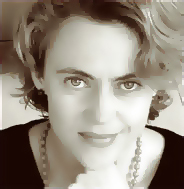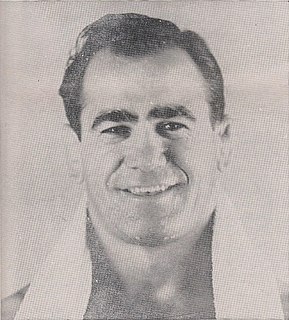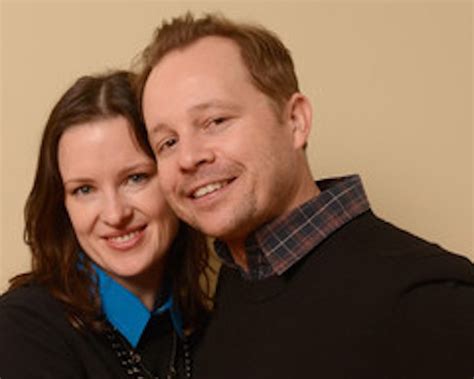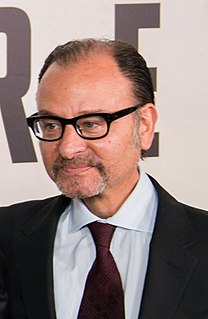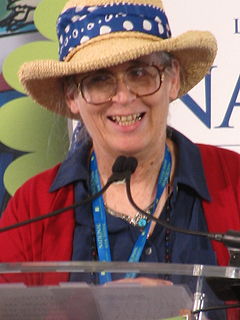Top 1200 Fantasy Books Quotes & Sayings
Explore popular Fantasy Books quotes.
Last updated on April 16, 2025.
I always wanted to grow up in a house full of books, English books, and I wanted the sort of fireplaces that worked, overstuffed chairs, that whole kind of fantasy of a bookish New England life. So the library gave me that; for the hours that I was there, I was surrounded by that atmosphere that I craved in my life.
THE NAME OF THE WIND has everything fantasy readers like, magic and mysteries and ancient evil, but it's also humorous and terrifying and completely believable. As with all the very best books in our field, it's not the fantasy trappings (wonderful as they are) that make this novel so good, but what the author has to say about true, common things, about ambition and failure, art, love, and loss.
Back in middle school, Catherine and I had gone through this stage where all we would read were fantasy books. We'd consume them like M&M's, by the fistful, J.R.R. Tolkien and Terry Brooks and Susan Cooper and Lloyd Alexander. Susan Boone looked, to me, like the queen of the elves (there's almost always an elf queen in fantasy books). I mean, she was shorter than me and had on a strange lineny outfit in pale blues and greens.
I really wish that peoplewould just say, 'Yes, it's a comic. Yes, this is fantasy. Yes, this is Science Fiction,' and defend the genre instead of saying, 'Horror is a bit passe so this is Dark Fantasy,' and that' s playing someone else's game. So that's why I say I'm a fantasy writer and to hell with 'It doesn't read like what I think of as a fantasy'. In that case what you think of as a fantasy is not a fantasy. Or there is more to it than you think.
If you are going to write, say, fantasy - stop reading fantasy. You've already read too much. Read other things; read westerns, read history, read anything that seems interesting, because if you only read fantasy and then you start to write fantasy, all you're going to do is recycle the same old stuff and move it around a bit.
My platform has been to reach reluctant readers. And one of the best ways I found to motivate them is to connect them with reading that interests them, to expand the definition of reading to include humor, science fiction/fantasy, nonfiction, graphic novels, wordless books, audio books and comic books.
Only idiots or snobs ever really thought less of 'genre books' of course. There are stupid books and there are smart books. There are well-written books and badly written books. There are fun books and boring books. All of these distinctions are vastly more important than the distinction between the literary and the non-literary.
When you realize my best selling books are 'Owl Moon,' the 'How Do Dinosaur' books, and 'Devil's Arithmetic,' how can the public make sense of that! I have fans who think I only write picture books or only write SF and fantasy. I have fanatics of my poetry and are stunned to find out I write prose, too!
I was also a science fiction and fantasy fan, growing up, in games and books and movies. I love Tolkien and I love Dungeons & Dragons, so the opportunity to have a fantasy-based RTS, or real time strategy game, at that time, seemed cool. I started playing it, and the early games were simple, but fun and they had these great heroes.
Nobody wants to see the truth. Everybody wants to have the fantasy. When I look back at the books I was reading in my childhood were selling some sort of fantasy as well. Most stories are not going to tell the deep suffering of every day. No book prepared me for the suffering I would experience in life because the word "suffering" does not even describe what the suffering is. No story is going to tell you that, and no words can tell you that.
I find it interesting that authors of fantasy and science fiction novels are rarely asked if their books are based on their personal experiences, because all writing is based on personal experience. I may not have gone on an epic quest through a haunted forest, but the feelings in my books are often based on feelings I've had. Real-life events, in fantasy and science fiction, can take on metaphorical significance that they can't in a so-called realistic novel.
When I write a book, I put everything I have into it; so the more I have, the more the books become. Some people get freaked out by them: mostly the people who believe, mistakenly, that fantasy is about escaping reality. To them I say: If you have a problem with reality, you should be spending more time dealing with your life, and less time reading popcorn fantasy.
If your entire conception of what's possible in fantasy only comes from other fantasy books, you're going to go on to create a copy of a copy of a copy. There's nothing original there, nothing dynamic. Which is fine if that's your goal, but I've always wanted to do something no one else was doing before.
Much of the way books get classified has to do with marketing decisions. I think it's more useful to think of literary books and sci-fi/fantasy books as existing on a continuum. To oppose them, to suggest that one category excludes the other, always feels bogus to me. The great Leonard Michaels line is "I wanted proximity to darkness, strangeness"? That's what I'd say I want from a book, regardless of where it falls on the fantastical spectrum - that suspense connected to a particular human character, rather than just some mechanized plot.











